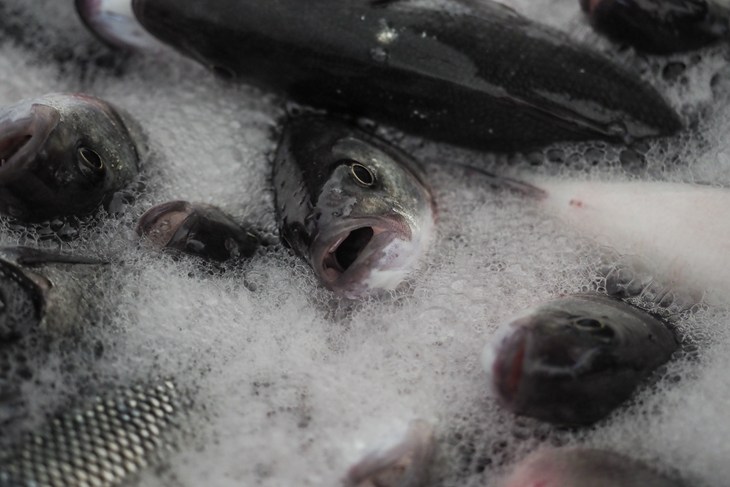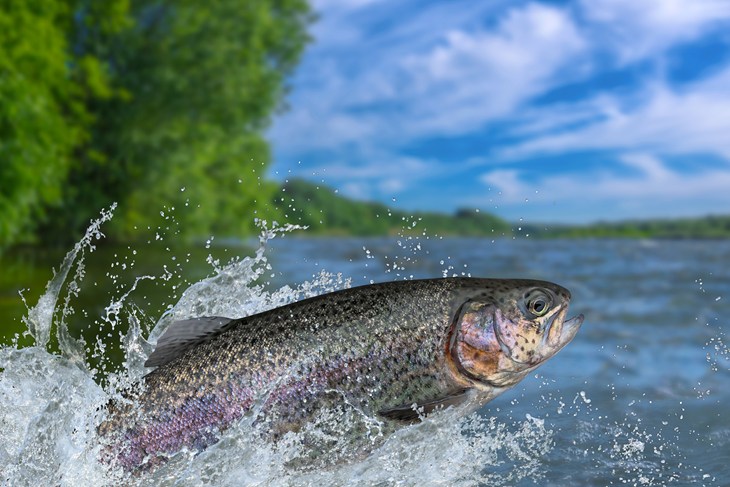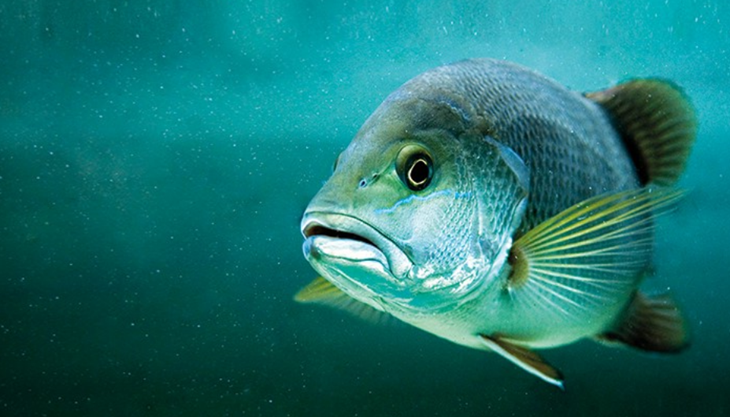This week, the European Commission published its new guidelines for fish and seafood farms, which set out standard priorities and targets to ensure the sector is run and developed sustainably. Compassion in World Farming celebrates this development since it is the first time that a special section on fish welfare has been included in such guidelines.
Fish need better protection
The old guidelines for fish and seafood farms, dating from 2013, were outdated considering the climate crisis, the need to develop the aquaculture sector in an environmentally friendly way and the recent developments on animal welfare.
Compassion in World Farming has been actively campaigning for the inclusion of animal welfare in the sustainability fish farming agenda since the well-being of the animals involved in the aquaculture sector is closely linked to ethical, environmental and social considerations.
We have been advocating for the introduction of new species-specific legislation for farmed fish, the implementation of stunning methods before slaughter for farmed fish and the phase out of the use of wild-caught fish to feed farmed fish, as well as mandatory labeling of seafood products including method of production.

Priorities adopted by the Commission
Today, we welcome a new section in the guidelines about fish welfare and its focus on animal health. In it, the Commission calls for the development of codes of practice for the welfare of fish during farming, transport and slaughter; the development of species-specific welfare indicators; more research on the welfare of farmed fish, as well as training producers on fish welfare.
Moreover, the guidelines encourage producers to limit the reliance on fishmeal and fish oil taken from wild-caught fish. For EU aquaculture to become sustainable, we must see a move away from intensive farming of carnivorous species (like salmon or sea bass and bream) that require lots of feed, mostly based on wild-caught fish.
The use of wild fish removes a vital part of the oceanic food chain. The forage fish used to make fishmeal and oil are also killed inhumanely in massive numbers, estimated at 500-1200 billion individuals globally per year.
Instead, we need to promote extensive systems and low food chain species as algae and shellfish that do not require feed and provide ecosystem services as the absorption of excess nutrients and organic matter from the environment or the conservation and restoration of ecosystems and biodiversity.
We welcome that the guidelines support the cultivation of seaweed and mollusks, extensive methods of production as ponds or wetlands and integrated multi-trophic aquaculture, as these can provide climate-mitigation services such as carbon sequestration.

The EU needs to do more
However, we also need new species-specific legislation for farmed fish. As sentient beings, fish need to be better protected, yet fish are covered only very generally by legislation regarding farmed animals.
This is especially important for the slaughter of fish. Commonly, fish are killed by asphyxiation in air or ice slurry, or exposure to carbon dioxide gas; loss of consciousness and death by these methods is not quick and suffering is unacceptably prolonged. Stunning methods (such as electrical or percussive stunning) are available and can allow for a more humane death for many species.
Fish welfare urgently needs to be addressed. Farmed fish should be protected by detailed species-specific EU legislation in line with the guidelines of the World Organisation for Animal Health.
